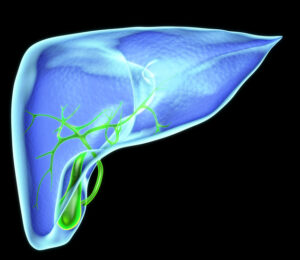Tranexamic acid is a synthetic compound that prevents fibrin clot degradation and has been shown to reduce blood loss and transfusions in many situations, including traumatic brain injury and cardiac and orthopedic surgeries. To determine if tranexamic acid also reduces bleeding and transfusions in patients undergoing liver resection, researchers randomized 1384 patients (mean age, 62 years; 40% female; 56% with colorectal liver metastasis) between December 2014 and November 2022. At the start of anesthesia, 619 patients received tranexamic acid (1-g bolus followed by 1-g infusion over 8 hours) and 626 received saline placebo. Tranexamic acid did not reduce blood loss or RBC transfusions—16.3% of patients in the tranexamic acid arm received RBC transfusions within 7 days of surgery compared to 14.5% of patients in the placebo arm (odds ratio, 1.15; 95% C.I., 0.84-1.56; p=0.38). However, patients who received tranexamic acid were more likely to experience major postoperative complications (compared to those who received placebo (p=0.03). While tranexamic acid reduces bleeding in many situations and surgeries, tranexamic acid may not be as effective for patients with acute gastrointestinal bleeding, obstetrical hemorrhage and patients undergoing liver resections. Further research is needed to determine when tranexamic acid is most effective.
Reference:

